Premium Only Content
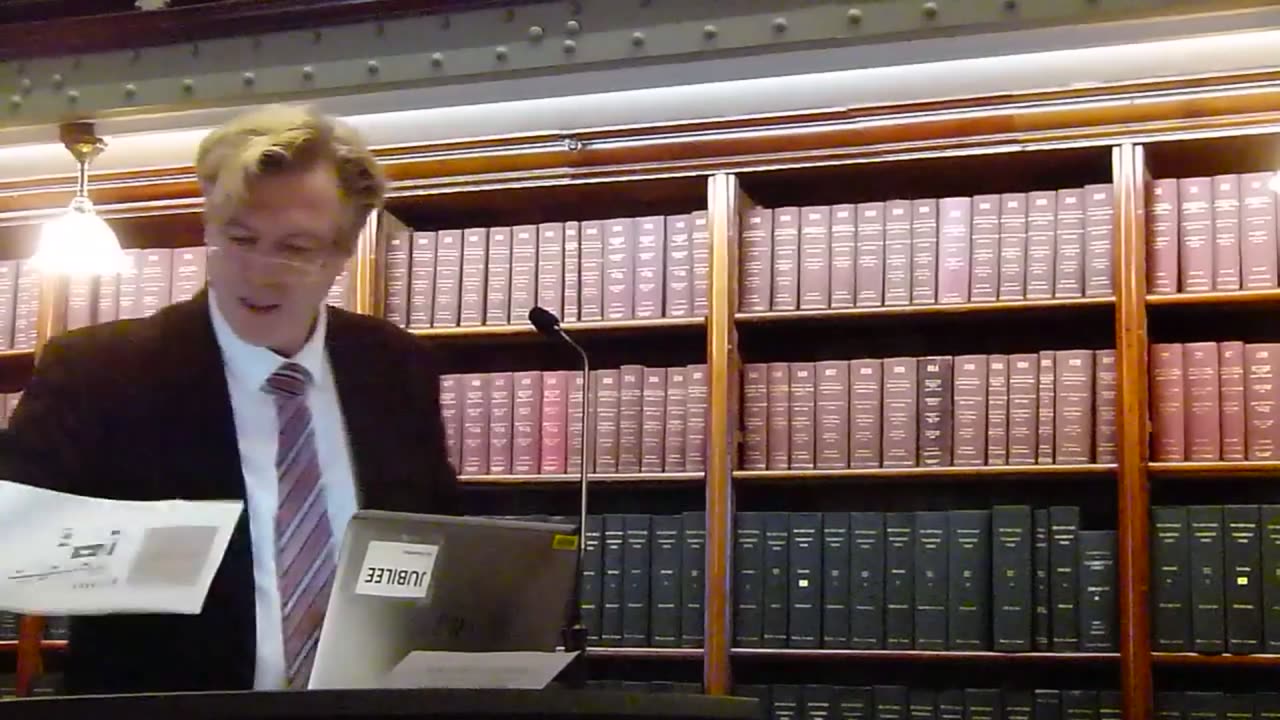
Sean Burke: Who is Gagging the Media?
SUMMARY:
------------------------------
Sean Burke delivers a candid, insider’s take on who’s trying to gag the media in Australia and why that should alarm everyone. Drawing on a long career in regional Fairfax papers, News Limited community titles, the Daily Mirror and later magazine publishing and operations, Sean mixes newsroom anecdotes with sharp observations about political and commercial pressures on journalism. He talks about the Mirror/Telegraph consolidation, the personal costs of life in newsrooms, redundancy in 2010 and his move into online commentary. The central message is simple and forceful: a free press is more important than any single career or political party, and parties that control or manipulate the media shouldn’t govern. This talk is conversational, sometimes funny, often blunt — ideal for journalists, students, media watchers and anyone concerned about censorship, press freedom and how politics and media shape each other in Australia. You’ll come away with a clearer sense of recent media history, the risks journalists face and why protecting independent journalism matters.
RUMBLE DESCRIPTION:
-----------------------------------
AAustralian journalism veteran Sean Burke delivers an insider's perspective on media censorship and press freedom in this comprehensive career retrospective. Burke traces his journey from grassroots reporting at Fairfax regional publications and community newspapers through his tenure at News Limited properties and the Daily Mirror, providing firsthand accounts of the newsroom dynamics behind major media consolidations.
The experienced journalist details his transition into magazine publishing and digital operations while examining how the 24/7 news environment transformed media landscapes. Burke candidly discusses industry upheaval including his 2010 redundancy and subsequent move to freelance contracting and online commentary work.
Through compelling newsroom anecdotes covering late-night deadlines, editorial conflicts, and the personal costs of journalism careers, Burke demonstrates how commercial pressures intersect with political influence to determine news coverage. He emphasizes that press freedom represents a fundamental democratic institution that transcends individual careers, political parties, or corporate interests.
Burke argues that governments capable of controlling media narratives lack legitimate authority to govern, positioning independent journalism as essential infrastructure for democratic society. His analysis draws from decades of direct experience across multiple Australian media organizations and publishing formats.
This content serves journalism students, political observers, media professionals, and citizens concerned about censorship threats to democratic institutions. The discussion combines historical context with contemporary warnings about press freedom erosion while advocating for robust independent journalism protection.
Burke's insider knowledge offers valuable insights into Australian media industry evolution and the ongoing challenges facing press independence in modern democratic societies.
⚠️ CONTENT DISCLAIMER ⚠️
The views, opinions, and statements expressed in this video are those of the individual speaker(s) and audience members. They do not necessarily reflect the views, opinions, or positions of Western Heritage Australia or its affiliates.
This content is presented for educational and informational purposes as well as to facilitate public discourse on important social and political issues. We provide a platform for diverse Australian voices to be heard, to assist the public in forming their own informed opinions.
Western Heritage Australia does not endorse, verify, or take responsibility for the accuracy of statements made by speakers. All claims, statistics, and opinions remain the responsibility of the original speaker. Viewers are encouraged to conduct their own research and consult multiple sources when forming opinions on these topics.
This video may contain strong political opinions, controversial viewpoints, strong language, or mature themes. Viewer discretion is advised.
-
 2:03:34
2:03:34
Tucker Carlson
1 hour agoCovid Whistleblower: Predicting Pandemics & Exposing the CIA and Peter Daszak’s Alliance With China
908 -
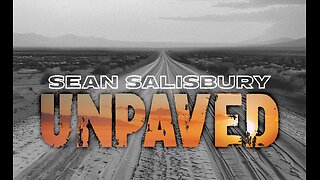 35:26
35:26
Sean Unpaved
2 hours agoMLB Meets CFB Chaos: Ohtani's Unicorn Night, Napier's Swamp Exit, & Bama's Rivalry Roll!
4.7K -
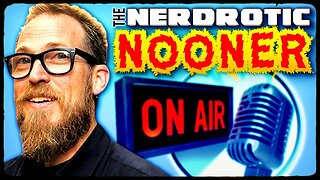 LIVE
LIVE
Nerdrotic
5 hours agoOne Woke After Another Isn't WOKE According to Woke People? - Nerdrotic Nooner 527
384 watching -
 1:03:26
1:03:26
Timcast
2 hours agoSecret Service Discovers HUNTING STAND Aimed At Trump, No Kings Protests FLOP
107K94 -
 2:03:54
2:03:54
Steven Crowder
4 hours agoNo Kings Lies Debunked: The Largest Protest Ever or Communist Psyop?
303K298 -
 LIVE
LIVE
Side Scrollers Podcast
21 hours ago🔴SIDE SCROLLERS FUND-A-THON🔴DAY 1🔴100% REVENUE HELPS CHANGE CULTURE!
793 watching -
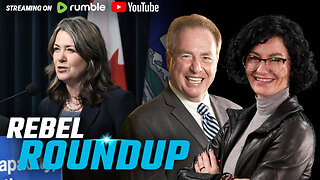 LIVE
LIVE
Rebel News
1 hour agoLiberal minister's silence over ostriches, Richmond land grab, Smith saves Ontario | Rebel Roundup
393 watching -
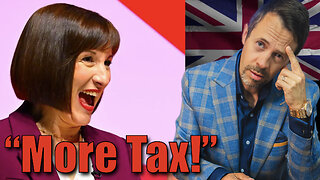 20:01
20:01
Neil McCoy-Ward
1 hour ago🚨 The UK Can't Survive Much More of THIS...
4.75K2 -
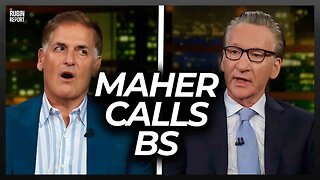 50:56
50:56
The Rubin Report
3 hours ago‘Real Time’ Crowd Roars for Bill Maher Pointing out Hypocrisy of Protesters
27.7K32 -
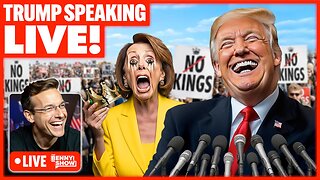 2:16:17
2:16:17
Benny Johnson
4 hours ago🚨Trump Speaks LIVE Now As Senile 'No Kings' Protesters HUMILIATED by Memes | New Assassin Threat…
70.4K132